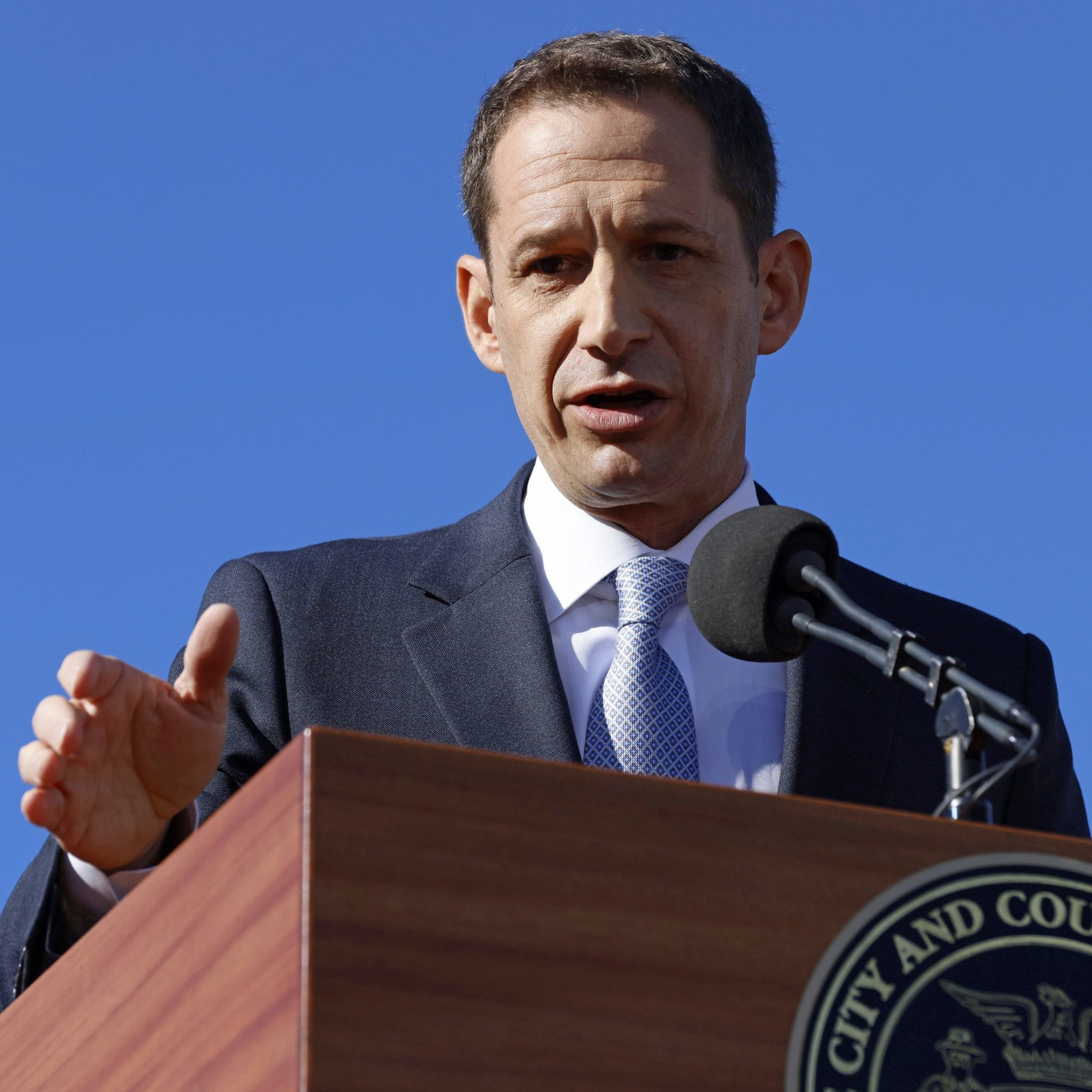San Francisco Mayor Daniel Lurie wants to turn out the pockets of members of his wealthy social circles for the public good.
In his first proposed law, Lurie, a centi-millionaire and heir to the Levi Strauss fortune, seeks to loosen city regulations to allow the mayor’s office to solicit donations from “various private entities and organizations” to address the fentanyl crisis, homelessness, and public safety. The loosened laws concerning private donations would be in effect for six months.
The draft legislation, sent to the Board of Supervisors on Tuesday, also asks the board to voluntarily give up its authority to approve contracts in those areas, in the name of speed.
“The city wants to try innovative solutions to address these crises more effectively and more quickly, but long-established rules often stand in the way of speedy progress,” Lurie’s draft law reads. He intends to “expedite the city’s response to these challenges and expand the city’s capacity to meet these challenges.”
The law focuses on contracts addressing homelessness, drug overdoses and substance use disorders, mental health needs, and public safety. It would likely cover a wide swath of contracts; for example, approving funds to buy property for a new homeless shelter, hiring a nonprofit health contractor to provide free checkups, or paying unarmed ambassadors like Urban Alchemy to patrol the Tenderloin.

Negotiations with the Board of Supervisors could change the draft law. The first version is as an opening salvo — and an early test of the “new era of cooperation” between the mayor and the board that Lurie promised in his inauguration speech.
Already, members of the Board of Supervisors are sounding skeptical notes.
“I’m open to providing Mayor Lurie the necessary legislative tools to tackle the fentanyl crisis, but not at the expense of checks and balances of the legislative branch,” Supervisor Connie Chan told The Standard.
But publicly at the Board of Supervisors regular meeting Tuesday, and speaking to The Standard, a few noted their support: Supervisors Bilal Mahmood, Joel Engardio, Danny Sauter, and Matt Dorsey.
“There’s a part of this that’s personal for me as someone struggling with addiction, but also in my time in the city attorney’s office,” Dorsey said. He said he’s seen how stymied the government can get: “Sometimes we have to declare an emergency to get out of our own way internally.”
Others are reserving judgment before they hear more, like Supervisor Shamann Walton, who told the board, “I’m not sure how the current plan reflects action.”
On the campaign trail, Lurie promised to declare a fentanyl state of emergency on “Day One,” which would help him cut red tape in addressing the crisis. That didn’t happen.
As The Standard has noted, a legal “state of emergency” must be unforeseen and sudden to hold up to legal scrutiny. Lurie’s draft law aims to achieve similar goals without the legal mechanism of an emergency declaration.
Some provisions may be welcome: allowing quicker hiring, for instance, and allowing departments to more easily move money around where it’s needed, without red tape.
From the Board of Supervisors’ perspective, other parts of the legislation may be a hard sell.
The draft says the provision around board authority will sunset in 2029, a long period for the supervisors to give up the ability to provide checks and balances to Lurie’s administration. The draft also notes that some departments may award contracts without a competitive bidding process — the same lack of oversight that enabled Mohammed Nuru, the convicted former director of the SF Department of Public Works, to award contracts in exchange for bribes.
Giving up board authority may also raise the eyebrows of the various unions who work with the board on labor practices. Rudy Gonzalez, secretary-treasurer of the San Francisco Building and Construction Trades Council, said he was guaranteed by Lurie’s administration that prevailing wages would be protected — calming his fears the legislation would cut out working-class people.
“I’m going to be supportive of the administration treating the fentanyl crisis as a true emergency,” Gonzalez said.
A source familiar with negotiations said that conversations are now focused on what would be a 45-day window for the board to reject contracts if they wanted to, which is the same for the process of commission appointments.
A similar concern may arise in granting Lurie the ability to solicit funds from private donors. Government staff are legally barred from soliciting donations from parties with business before their departments, a practice legally known as “behested payments.” The city at times has waived behested payment laws for specific projects. That may prove relevant as the city tries to plug its two-year $876 million budget deficit.
That may be why in his inauguration day speech, Lurie described private funds as a “critical requirement” for his policy initiatives.
